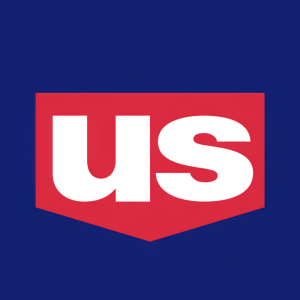U.S. Bank, First Mile Continue To Reduce Ocean-Bound Plastic, Build Communities
U.S. Bank is enhancing its commitment to sustainability through a partnership with First Mile, aiming to reduce ocean-bound plastic waste while supporting communities. The initiative utilizes reclaimed ocean-bound plastic for eco-friendly debit cards, significantly contributing to environmental preservation. For every million cards produced, over one ton of plastic is diverted from harmful environments. Additionally, this partnership aids in creating well-paying jobs for workers in Haiti, with 27% of U.S. Bank's debit card members opting for these eco-friendly designs. U.S. Bank continues to prioritize environmental, social, and governance (ESG) goals through these efforts.
- Partnership with First Mile aids in reducing ocean-bound plastic waste.
- For every million debit cards produced, over one ton of plastic is diverted from oceans.
- 27% of debit card members choose eco-friendly designs, reflecting customer support.
- The initiative creates well-paying jobs for plastic collectors in Haiti.
- None.
NORTHAMPTON, MA / ACCESSWIRE / March 31, 2023 / U.S. Bank

Originally published on U.S. Bank company blog
Going the extra mile is a well-known phrase to U.S. Bank Product Manager Ted Gamble. In a 2021 project call with First Mile®, he began a journey that took him from exchanging smiles on video calls to logging miles on the running trail - with far reaching impact.
First Mile, an initiative of Thread International and WORK, formalizes waste collection networks in low-income communities. It helps bridge the gap for global brands to purchase from responsible supply chains, while simultaneously diverting plastic waste from oceans and landfills.
This reclaimed ocean-bound plastic, or ROBP, is used in the eco-friendly Diving Turtle and Serene Beach U.S. Bank debit card designs. It's estimated that for every million cards produced, more than one ton of plastic will be diverted from entering the world's oceans, waterways and shorelines.1
WORK is the nonprofit entity in the First Mile private-nonprofit partnership. It's mission to "accompany families in Haiti out of poverty through good, dignified jobs" appealed to Gamble.
"Not only does this partnership keep plastic out of the ocean," he said, "but it does it in a way that gives the front-line workers ways to support their families and communities though education, health care, safety workshops and livable wages. That was something I wanted to support."
Gamble discovered he could support WORK's mission through Run Across May, a fundraiser that challenges individuals and teams to run 200 or more miles to raise funds and awareness for the organization. He joined the race that year, clocking in 222 miles in his hometown of Dundas, Minnesota. He ran the event again in 2022 for a total of 442 miles - an achievement that deepens his connection to First Mile and its mission - right alongside U.S. Bank.
U.S. Bank and its customers commit to cleaner oceans, stronger communities
U.S. Bank is committed to enabling a sustainable future through climate goals, client engagement and support, and vendor and community agreements. The relationship with First Mile supports the bank's environmental, social, governance (ESG) work through a positive impact on communities and the environment.
When customers choose an eco-friendly debit card from U.S. Bank, they help First Mile create supply chains that have already saved millions of pounds of plastic from landfills and oceans, as estimated by the organization. The project has the added benefit of creating well-paying jobs for thousands of plastic collectors in Haiti and beyond, providing financial stability to local communities across the globe.
Customers are on board with this initiative, with
1. CPI Card Group, "Payment Industry Introduces Recovered Ocean-Bound Plastic Card" (2020)
View additional multimedia and more ESG storytelling from U.S. Bank on 3blmedia.com.
Contact Info:
Spokesperson: U.S. Bank
Website: https://www.3blmedia.com/profiles/us-bank
Email: info@3blmedia.com
SOURCE: U.S. Bank
View source version on accesswire.com:
https://www.accesswire.com/746963/US-Bank-First-Mile-Continue-To-Reduce-Ocean-Bound-Plastic-Build-Communities
FAQ
What is the impact of U.S. Bank's partnership with First Mile on the environment?
How many U.S. Bank debit card members choose eco-friendly card designs?
What are U.S. Bank's plans for sustainability?
What benefits does the First Mile initiative provide to communities?







